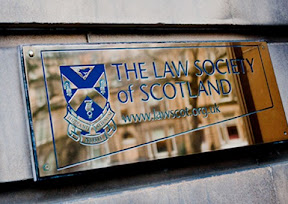
Vulnerable clients should not be viewed as meal tickets THE client coming through the your office door seeking legal assistance may not always be 100% fit, as many solicitors are well aware. This is increasingly the case due to these times of increased financial hardship and lack of ability on the part of many clients to understand why a small issue ends up as a costly, and usually unsuccessful legal battle which drags on for years.
To address the rising numbers of complaints being made against Scottish solicitors by clients who have long term disabilities, mental health problems and other vulnerabilities, due in part to a common perception that some unscrupulous members of the legal profession are ‘taking vulnerable clients for a ride’, when they see them walk through the door, the Law Society of Scotland has today, 1 August, published three new guides, designed to support Scottish solicitors in meeting the needs of every single client.
The new guide Ensuring fairness and creating more accessible services will assist solicitors to comply with the Equality Act 2010 when providing services for people with a disability.
The new guide "Ensuring fairness and creating more accessible services" can be viewed HERE
Updated guidance on "Continuing and welfare powers of attorney" can be viewed HERE
New guidance on "Vulnerable clients" can be viewed HERE
According to Law Society research, around a third of households in Scotland (34%) contain at least one person with a long-standing illness, health problem or disability. In recognition of this important group, the Law Society asked Capability Scotland to develop a guide to assist solicitors who work with clients who have a disability. The guide is full of useful cases studies, based on real life experiences to remind solicitors that behind the legal need for compliance and the rules of the Society, it is also important to consider the particular circumstances of every single client.
The Society has also updated its guidance on "Continuing and welfare powers of attorney" following recommendations from the Mental Welfare Commission for Scotland. In considering these recommendations, it quickly became apparent that the issues identified by the Mental Welfare Commission for Scotland were relevant to a much wider range of matters. Accordingly, the Society has created entirely new "Vulnerable clients" guidance to help solicitors respond to clients who may be at risk of impaired capacity or possibly subject to undue influence.
Bruce Beveridge, President of the Law Society of Scotland, said: "We are committed to supporting Scottish solicitors in meeting the needs of every single client and providing the best service possible. These new guides will equip solicitors with the necessary information to advise clients, whatever their personal circumstances may be."
No comments:
Post a Comment